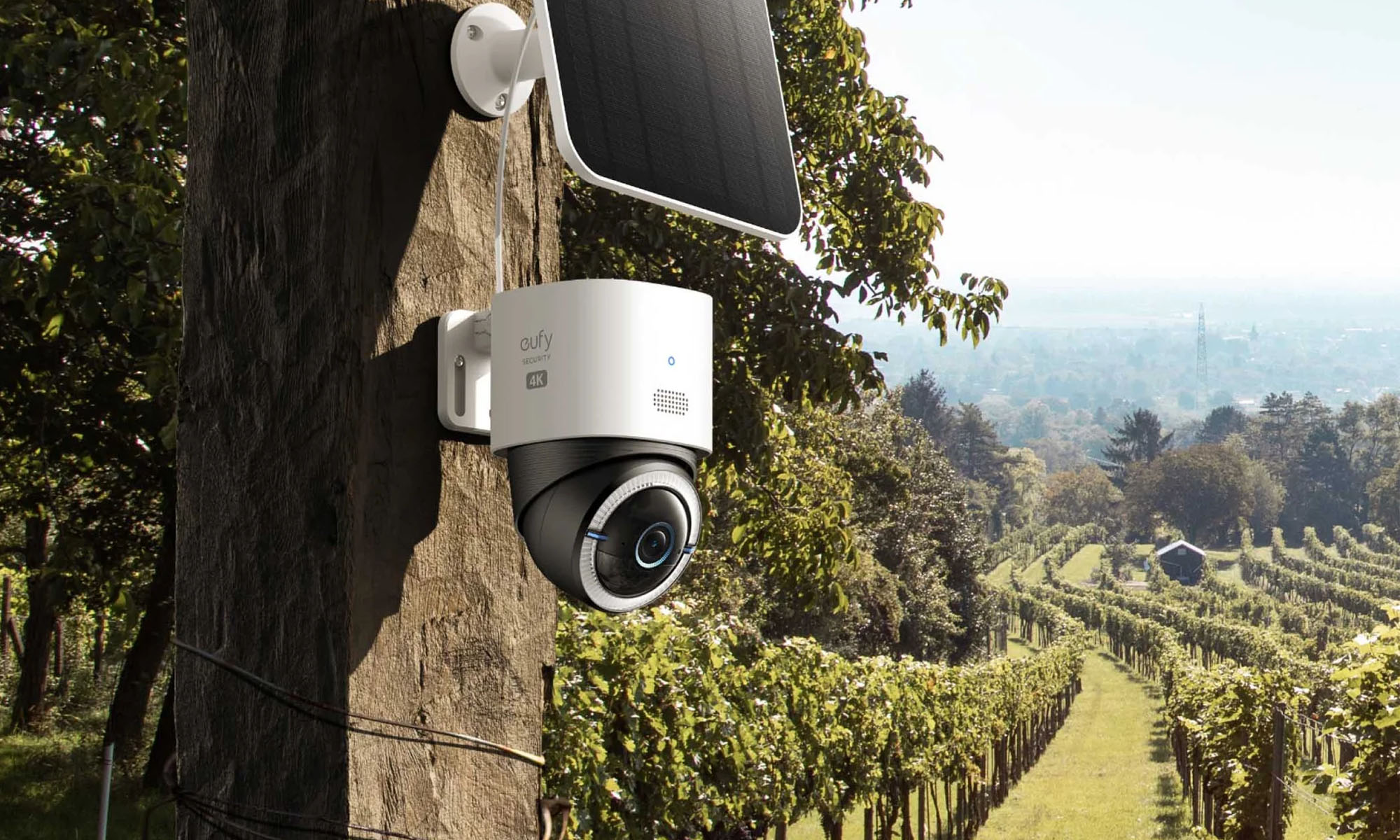News
Eufy’s New 360° 4K Camera Doesn’t Require Wi-Fi Or Mains Power
The device has the same $249.99 launch price as the firm’s previous LTE-equipped Starlight camera but offers many more features.

Anker’s Eufy division has unveiled the S330, a feature-packed and fully self-sufficient 4K security camera offering a full 360-degree field of view, with pan up to 344 degrees and tilt capabilities of 70 degrees. What sets the device apart is its ability to operate autonomously without the need for Wi-Fi or conventional power sources, a feature the company touts as “off-the-grid freedom”.
Priced at $249.99, the Eufy 4G LTE Cam S330 utilizes LTE (4G) connectivity, bypassing the necessity for Wi-Fi by tapping into nearby cell towers. In addition, it features a removable solar panel, requiring just two hours of sunlight to sustain its 36.2Wh battery. With a battery life of up to one month on a single charge, it remains operational even in adverse or overcast weather conditions.
The S330 effectively addresses previous concerns with LTE-enabled cameras, offering versatile installation options for both urban and remote settings. Designed to withstand extreme temperatures (-4 to 122 degrees Fahrenheit) and equipped with AI-powered detection for vehicles and humans, it also ensures minimal false alarms.
Also Read: Meet LiFi: The New Tech Delivering High-Speed Internet Using Light
Additionally, the S330 incorporates a 100-lumen spotlight for illumination and supports two-way audio, alarm activation, and voice control via Google Assistant and Amazon Alexa. Local storage of up to eight months’ worth of recordings is facilitated by a 32GB microSD card, with expansion options up to 128 GB.
Eufy claims there are no activation fees or contracts for utilizing the camera’s SIM card facility, but users will need to pay for any data used after the initial 100MB trial has been used up. Apparently, the S330 uses an average of 700 MB a month, which is definitely something you’ll want to factor in before making a purchase.
News
Rabbit Expands Hyperlocal Delivery Service In Saudi Arabia
The e-commerce startup is aiming to tap into the Kingdom’s underdeveloped e-grocery sector with a tech-first, locally rooted strategy.

Rabbit, an Egyptian-born hyperlocal e-commerce startup, is expanding into the Saudi Arabian market, setting its sights on delivering 20 million items across major cities by 2026.
The company, founded in 2021, is already operational in the Kingdom, with its regional headquarters now open in Riyadh and an established network of strategically located fulfillment centers — commonly known as “dark stores” — across the capital.
The timing is strategic: Saudi Arabia’s online grocery transactions currently sit at 1.3%, notably behind the UAE (5.3%) and the United States (4.8%). With the Kingdom’s food and grocery market estimated at $60 billion, even a modest increase in online adoption could create a multi-billion-dollar opportunity.
Rabbit also sees a clear alignment between its business goals and Saudi Arabia’s Vision 2030, which aims to boost retail sector innovation, support small and medium-sized enterprises, attract foreign investment, and develop a robust digital economy.
The company’s e-commerce model is based on speed and efficiency. Delivery of anything from groceries and snacks to cosmetics and household staples is promised in 20 minutes or less, facilitated by a tightly optimized logistics system — a crucial component in a sector where profit margins and delivery expectations are razor-thin.
Despite the challenges, Rabbit has already found its stride in Egypt. In just over three years, the app has been used by 1.4 million customers to deliver more than 40 million items. Revenue has surged, growing more than eightfold in the past two years alone.
Also Read: Top E-Commerce Websites In The Middle East In 2025
CEO and Co-Founder Ahmad Yousry commented: “We are delighted to announce Rabbit’s expansion into the Kingdom. We pride ourselves on being a hyperlocal company, bringing our bleeding-edge tech and experience to transform the grocery shopping experience for Saudi households, and delivering the best products – especially local favorites, in just 20 minutes”.
The company’s growth strategy avoids the pitfalls of over-reliance on aggressive discounting. Instead, Rabbit leans on operational efficiency, customer retention, and smart scaling. The approach is paying off, having already attracted major investment from the likes of Lorax Capital Partners, Global Ventures, Raed Ventures, and Beltone Venture Capital, alongside earlier investors such as Global Founders Capital, Goodwater Capital, and Hub71.




















